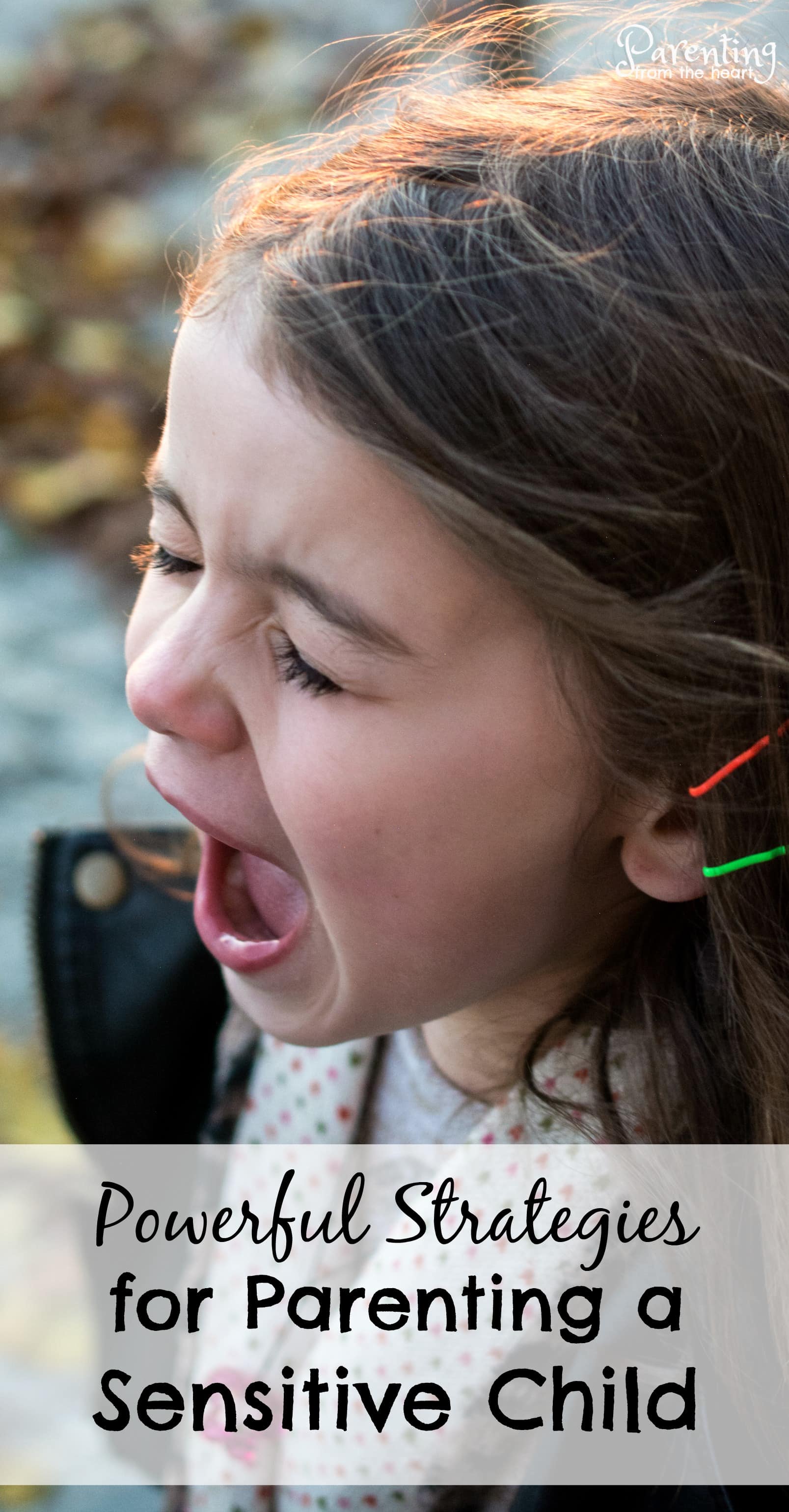Parenting a sensitive child can, at times, feel like you’re navigating a mine field. Here are positive parenting resources to effectively parent your emotional child.
My four-year-old son is the most sensitive child I know. Thanks to his sensitivity, he is affectionate, kind-hearted and earnest. There is no in my life who tells me they love me more frequently than him.
He’ll call out to me repeatedly. I will think he wants something. For instance, he seems to ask umpty-nine times a day what we have to eat. I’ll respond expecting to have to list off everything in the pantry and fridge only to hear, “I love you so much, Mama.”
In that instant, his kindness melts me. The grind of my never-ending to-do list is lessened. And all of the particularly difficult parts of being a work from home parent momentarily slip away.
But it’s not just his words that are heartfelt.
Throughout the day, it’s pretty common for his hand to unexpectedly slide into mine. He’ll give it a squeeze. And then carry on his way crashing toy cars or telling his Paw Patrol pups, “Ryder needs us!” When I find a moment to sit down and eat my lunch or try to nurse the baby, he’ll crawl into my lap because he craves closeness.
The depth of his sensitivity is part of him that I truly cherish. But it also leaves me feeling immensely vulnerable.
As deeply as he feels love, he feels other emotions.
When he’s excited, he’s practically swinging from the rafters. When he’s happy, he’s shrill and elated. And when he’s sad, he’s crestfallen. But it’s his anger that makes me feel like I’m up the proverbial creek without a paddle.
[Related reading: Effective Strategies to Calm an Angry Child]
It has caught me off guard more times than I can count. Something seemingly significant sets him off. And he either collapses into tears or digs his heels in with a ferocity unlike anything I’ve seen. I try to use logic. He becomes more willful. I remain firm and then he explodes. It is then that my sensitive, heartfelt boy resorts to screaming, grunting, and becomes unwilling to move or listen at all.
In parenting a sensitive child, I’ve learned I need to tread lightly and strategically. Here are the most effective strategies for parenting a sensitive child that I’ve found.
5 Effective Strategies for Parenting a Sensitive Child
Parent preemptively.
This is a hard one for me to always remember. But I find that when I let my kids know my expectations, how are plans will unfold and what challenges they may face ahead of time, they are able to manage their emotions better. For instance, when they ask for the iPad, I let them know to set the timer for 30 minutes. I make sure they understand to shut it off when the timer rings. This goes over much better than arbitrarily taking the iPad away.
Comfort him. Don’t mistake comforting for coddling.
Here’s the thing. These two approaches may seem similar to the untrained eye. However, there is one major difference. Coddling, by definition, is to overprotect in an indulgent way. On the other hand, comforting is to alleviate a person’s feelings of distress. It doesn’t matter the source of the distress. Whether a child is crying because her granola bar fell or because she hurt herself badly, she needs comfort. When a child feels understood and reassured, he is able to get through his hurt and frustration more easily and get upset less frequently.
When she has a tantrum, remember you can’t control her reaction but you can control yours.
My kids are more likely to calm down faster when I react calming than when I get upset too. This also helps model self-regulation.
[Related reading: Stop Yelling at your Kids with this Simple Trick]
Remember that saying, ‘Calm down’ or ‘Stop crying’ doesn’t work.
Read more about why using phrases like, “Calm down,” doesn’t actually work here. Instead, these are some powerful and effective strategies to use instead.
No matter how difficult his tantrum or crying is, patience is key.
More times than I can count, I’ve tried to distract my son from being upset. I’m ashamed to admit this but I’ve tried bribery too.
“Do you want a cookie? If you calm down, you can have an Oreo.”
It’s taken many failed attempts at trying to ‘shortcut’ my way through a meltdown to realize, the only way through is to ride it out.
Additional Resources for Parenting a Sensitive Child
Raising Resilient Kids who Bounce Back
Parenting Through a Child’s Anger
How to Help an Angry Child Calm Down Anywhere (with free printable)
10 Tips to Help your Child with Anger
Sensory Hacks to Calm an Angry Child
Why is my Child so Angry and Aggressive
5 Simple Breathing Techniques to Calm an Angry Child
Why You Shouldn’t Punish Emotions
This is Why You Shouldn’t Punish Tantrums
Why You Can’t Discipline the Angry out of your Child
Parenting Through Anxiety and Fear
Coaching your Child Through Anxiety
Create your own Anti-Anxiety Kit for Children













4 comments